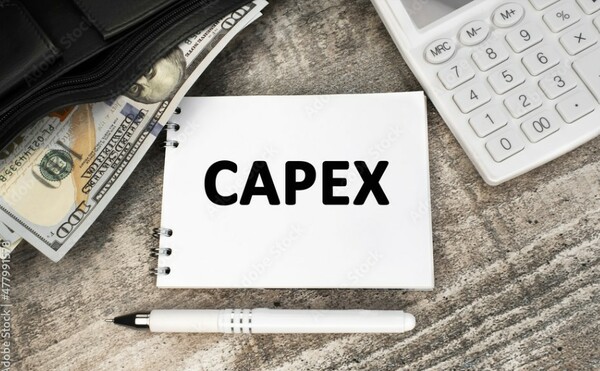Notifications
ALL BUSINESS
COMIDA
DIRECTORIES
ENTERTAINMENT
FINER THINGS
HEALTH
MARKETPLACE
MEMBER's ONLY
MONEY MATTER$
MOTIVATIONAL
NEWS & WEATHER
TECHNOLOGIA
TV NETWORKS
VIDEOS
VOTE USA 2026/2028
INVESTOR RELATIONS
DEV FOR 2025 / 2026
ALL BUSINESS
COMIDA
DIRECTORIES
ENTERTAINMENT
FINER THINGS
HEALTH
MARKETPLACE
MEMBER's ONLY
MONEY MATTER$
MOTIVATIONAL
NEWS & WEATHER
TECHNOLOGIA
TV NETWORKS
VIDEOS
VOTE USA 2026/2028
INVESTOR RELATIONS
DEV FOR 2025 / 2026
About Me
 sophia Mishra
sophia Mishra Evlwendz Blog" is a platform dedicated to exploring diverse topics, sharing insights, and creating engaging content.
Posted by - sophia Mishra -
on - Feb 21 -
Filed in - Business -
Capex -
102 Views - 0 Comments - 0 Likes - 0 Reviews

In the world of investing, comprehending various financial terminologies and their implications is crucial. One such term that holds significant importance is 'Capex.' Capex, or Capital Expenditure, is essential for a company's growth and competitive edge. This article aims to delve into what Capex means, particularly in the context of Indian investments, while highlighting its role alongside other financial tools like debentures.
Capital Expenditure (Capex) meaning refers to the funds utilized by a company to acquire, upgrade, and maintain physical assets such as property, buildings, industrial plants, technology, or equipment. It is a vital aspect of any business operations, aimed at enhancing the company’s capacity, efficiency, or generally improving its performance over the long term.
In accounting terms, Capex is capitalized because the benefit is expected to extend beyond the current fiscal year. This cost is recorded as an asset on the company’s balance sheet rather than an expense on the income statement. Over time, these costs are either amortized or depreciated.
For investors, Capex is a critical measure of a company's growth potential. High levels of Capex can indicate that a company is investing in future growth by expanding its operations or upgrading its assets. Conversely, minimal Capex might suggest that the firm is in a mature stage of its lifecycle with limited growth prospects.
Understanding Capex provides insights into:
To comprehend Capex better, let’s consider a hypothetical scenario. Suppose a company in India invests INR 50 crore in new manufacturing equipment expected to last 10 years. If the straight-line depreciation method is used, the annual depreciation expense would be INR 5 crore.
Calculation:
- Initial Capex = INR 50 crore
- Useful life of equipment = 10 years
- Annual Depreciation = Initial Capex / Useful life
- Annual Depreciation = INR 50 crore / 10 = INR 5 crore per year
This calculation helps in understanding the impact of Capex on the company’s financial statements.
While Capex pertains to asset acquisition and maintenance, debentures are a method of raising capital for such investments. Debentures are debt instruments used by companies to borrow money, typically offering a fixed interest rate to lenders. Understanding the interplay between Capex and debentures can provide a comprehensive picture of a company's financial strategies.
- Lower Costs: Debt financing through debentures can be a more cost-effective means of raising capital compared to equity financing, especially in a market with stable interest rates.
- Tax Benefits: Interest on debentures is tax-deductible, offering a financial advantage over equity financing.
- No Dilution of Ownership: Unlike equity, issuing debentures does not dilute existing shareholders' ownership.
However, it is crucial for investors to assess the debt levels of a company due to potential risks associated with over-leveraging.
In India, Capex trends vary across sectors. Infrastructure, manufacturing, and technology sectors typically exhibit higher Capex due to their capital-intensive nature. With the government’s push towards infrastructure development and digitalization, trends in these industries might reflect increased investor interest.
Capex is a crucial indicator of a company’s strategic direction and growth potential. When combined with tools such as debentures, it forms the backbone of corporate financial strategy aimed at steering the company towards achieving its long-term objectives. However, like all investment endeavors, Capex decisions come with inherent risks.
The information provided in this article is for educational purposes only. Investors are advised to conduct thorough research and consider various factors before making investment decisions in the Indian stock market. Understanding all the pros and cons of financial instruments like Capex and debentures is essential to mitigate risks and make informed investment choices.
